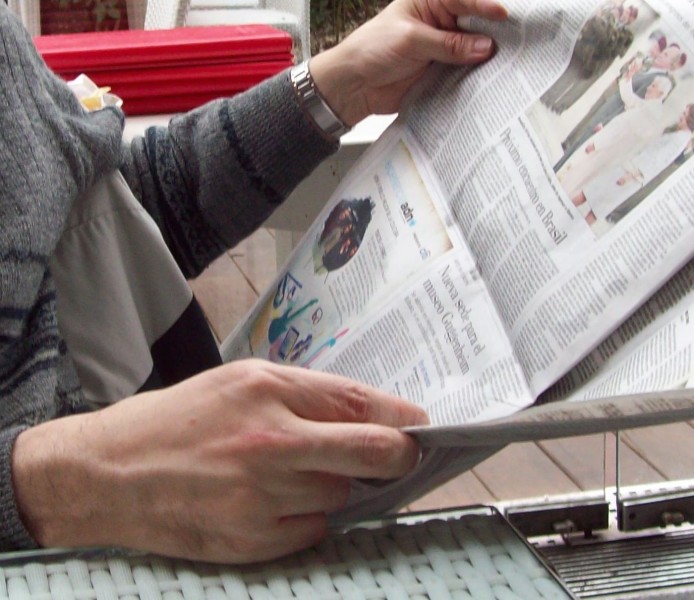A citizen movement in Venezuela this week is showing how social media can respond to censorship. In response to the January 12 front page of the Venezuelan newspaper Últimas Noticas [2] (The Latest News), Twitter users are mocking the publication with the hashtag #TitulaComoUltimasNoticas [3] (“Make headlines like Úlitmas Noticias”), inventing various satirical headlines. The hashtag became a trending topic on Twitter within a few hours.
One of the largest newspapers in Venezuela, Últimas Noticas was among the many media outlets sold [4] to an unknown party in October 2013. Since then, readers have noticed a sharp turn in the newspaper's editorial line, especially when it comes to commentary about the national government. In fact, several journalists resigned [5] in protest, after the paper censored articles that addressed student protests [6] in early 2014 and rising food prices and shortages [7].
Nevertheless, it was Últimas Noticas’ January 12 front page headline, “Maduro's Tour Was a Success,” that suddenly mobilized Twitter users this week. President Maduro's visit to several OPEC nations [8] was meant to help stabilize oil prices, on which Venezuela's economy desperately relies. Many in the public, who have watched the price of oil continue to plummet, found Últimas Noticas’ headline hard to believe.
… y así es como se pierde credibilidad en un medio. ¿Como creerles otra noticia? #TitulaComoUltimasNoticias [3] pic.twitter.com/WVv80x81kt [9]
— PRETORIANO REGENTE. (@PRETORIANOREGEN) January 12, 2015 [10]
…and that's how a media outlet loses credibility. How can you believe anything else they say?
“@millantweet [11]: La Mentira Vs. La Verdad! La Ficción Vs. La Realidad! #TitulaComoUltimasNoticias [3] pic.twitter.com/n6V4VpMstA [12]“
— Freiner Meléndez (@Freiner96) January 12, 2015 [13]
Lies vs. Truth! Fiction vs. Reality!
Internet users have tweeted the #TitulaComoUltimasNoticas hashtag and offered their own satirical news headlines. For example, how would a politically biased newspaper report the fact that many Venezuelans now have to wait in long lines in order to buy food?
#TitulaComoUltimasNoticias [3] El pueblo feliz “haciendo cola para cuidar los alimentos”. Pdval de Tía Juana, edo Zulia. pic.twitter.com/rCODuayTCB [14]
— Anthony P. Ovalles (@anthony301992) January 12, 2015 [15]
Happy citizens “waiting in line to look after food”. PDVAL [16] in Tía Juana, Zulia state.
#TitulaComoUltimasNoticias [3] Venezuela presenta un Excedente de Anaqueles en Supermercados de Todo el País pic.twitter.com/sg1lEHXTzZ [17]
— Vinicio Parra (@IngVinicioParra) January 12, 2015 [18]
Supermarket shelves in Venezuela show signs of surplus across the country.
Others have joked about the falling price of crude oil and its effects on Venezuelan society:
El petróleo cae a 37$ el barril y Venezuela se convierte en el país más feliz del mundo :) #TitulaComoUltimasNoticias [3]
— Mr. Dundas (@ManuelAlejandC) January 12, 2015 [19]
Oil dropped to $37 a barrel and Venezuela turns into the happiest country in the world.
Many media outlets in Venezuela have been sold, closed down, or neutered since Hugo Chávez's presidency. Indeed, censorship and pressure have also increased [20] under Nicolas Maduro's Government. The current shake-ups in the the Venezuelan press, says an analyst at the Committee to Protect Journalists, are part of a long campaign to weaken the privately owned news media.
